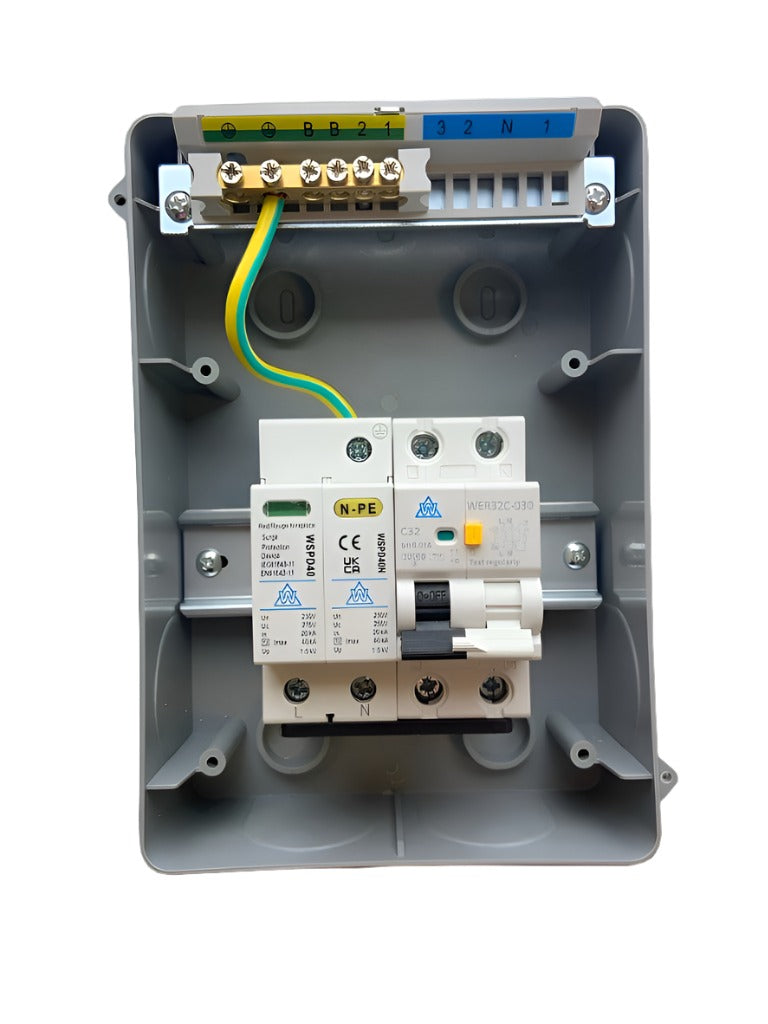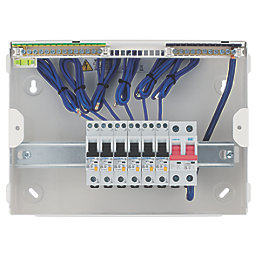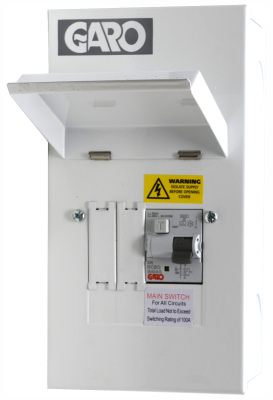A Comprehensive Overview to Preserving Your RCBO CONSUMER UNITS Successfully
A Comprehensive Overview to Preserving Your RCBO CONSUMER UNITS Successfully
Blog Article
The Duty of Consumer Devices in Efficient Energy Administration Solution
Customer units are essential to reliable energy monitoring systems, offering as the main distribution factors for electrical power within frameworks. The introduction of smart innovations has further improved their functionality, permitting for real-time data tracking and nuanced energy usage analysis.
Comprehending Customer Systems

Understanding the role of consumer units begins with recognizing their important feature in securing electrical systems. By separating mistakes within specific circuits, consumer systems protect against extensive blackouts and potential fire threats. This seclusion is achieved via the use of breaker that trip or integrates that blow when a fault is spotted, consequently removing the electric circulation to the impacted circuit.
Additionally, customer systems promote the orderly circulation of power, enhancing the performance of power usage. They permit the systematic administration of electrical tons, which can be particularly crucial in commercial and industrial settings where demand can vary dramatically. Properly maintained customer units add to the durability of electric systems and assist in lessening downtime triggered by electrical failings, inevitably supporting the smooth procedure of energy-dependent centers.
Smart Technologies Combination

A key advantage of wise consumer systems is their capability to utilize advanced formulas and artificial intelligence for predictive analytics. This enables preemptive adjustments based upon usage patterns, weather condition forecasts, and various other variables, substantially increasing general performance. Moreover, smart consumer systems promote demand feedback programs, where power use can be dynamically changed during height durations to support the grid and lower costs.
The assimilation of renewable energy sources, such as solar and wind, is also structured via clever customer units. By intelligently managing the intermittency of these resources, these devices make sure a trusted and well balanced energy supply. Additionally, smart consumer systems improve customer involvement by giving comprehensive understandings and remote control capabilities via mobile applications, fostering a more proactive strategy to power conservation and sustainability.
Tracking Energy Usage
Building on the capacities of wise innovations assimilation, keeping an eye on energy consumption becomes a crucial focus within power monitoring systems. Reliable surveillance offers as the foundation for identifying power inadequacies and applying rehabilitative steps. By leveraging advanced metering infrastructure (AMI), real-time information on power usage can be collected at granular degrees, offering useful insights right into usage patterns and peak demand durations. This data-centric strategy allows both customers and power managers to make enlightened decisions targeted at decreasing waste and enhancing total efficiency.
Smart meters and Internet of Things (IoT) gadgets play a critical role in this tracking procedure. These devices can track energy use in real-time, transferring information to central systems for evaluation. The gathered information is after that processed via sophisticated formulas to spot abnormalities, forecast future consumption, and suggest optimization approaches. In addition, cloud-based options provide scalable platforms for keeping and examining huge datasets, promoting remote surveillance and control.
The assimilation of these modern technologies not just encourages customers with detailed details concerning their energy use however additionally supports utility carriers in taking care of load distribution better. Eventually, accurate and constant surveillance is essential for accomplishing energy effectiveness, price savings, and sustainability goals within energy monitoring systems.
Optimizing Appliance Usage

One efficient technique includes identifying height and off-peak hours to shift energy-intensive tasks, such as washing or dishwashing, to times when power need is lower. This not just minimizes stress on the grid however likewise profits from reduced power tolls. Furthermore, integrating artificial intelligence algorithms permits anticipating upkeep, ensuring devices run at ideal efficiency and lengthening their lifespan.
Power management systems can additionally incorporate user-specific web link choices and habits to customize appliance use routines. As an example, clever illumination systems can adjust illumination based on tenancy and all-natural light accessibility, while a/c systems can maintain comfort levels without too much power use.
Supporting Sustainability
Promoting sustainability within energy monitoring systems involves not only boosting efficiency however additionally cultivating eco liable practices. Customer systems are integral to this procedure, as they provide real-time data and control systems that make it possible for individuals to check and reduce their energy usage. By leveraging innovative technologies, consumer devices can determine energy-saving possibilities and assist in the combination of renewable resource sources like solar and wind power.
One essential facet of advertising sustainability is educating consumers on the benefits of accountable energy use. Via comprehensive understandings supplied by customer systems, individuals can make enlightened choices that decrease their carbon footprint. For circumstances, these devices can advise optimum times for running high-energy appliances based upon grid demand and eco-friendly power schedule, therefore minimizing reliance on nonrenewable fuel sources.
Moreover, consumer units support the adoption of smart grid innovations, which enhance the overall efficiency and integrity of energy distribution. By enabling two-way communication in between consumers and energy companies, these systems can dynamically get used to energy needs, lowering waste and promoting making use of lasting power methods.
Final Thought
Consumer devices, as essential parts of energy monitoring systems, substantially boost electrical security and effectiveness within buildings through circuit security and smart modern have a peek here technology integration. Additionally, the incorporation of sustainable power sources promotes sustainable methods, contributing to lowered overall energy usage and reduced carbon footprints.
Breakthroughs in clever innovations have actually changed the capabilities of energy monitoring systems, particularly through the integration of wise consumer devices.Building on the abilities of wise modern technologies assimilation, monitoring power intake comes to be a crucial focus within energy administration systems.Efficient home appliance use optimization is an essential component of energy management systems, aiming to enhance efficiency and decrease unnecessary power usage.Consumer units, as essential components of power administration systems, significantly enhance electrical security and effectiveness within structures with circuit security and smart technology integration. Additionally, the unification of eco-friendly energy sources promotes sustainable techniques, adding to decreased overall power intake and lower carbon footprints.
Report this page